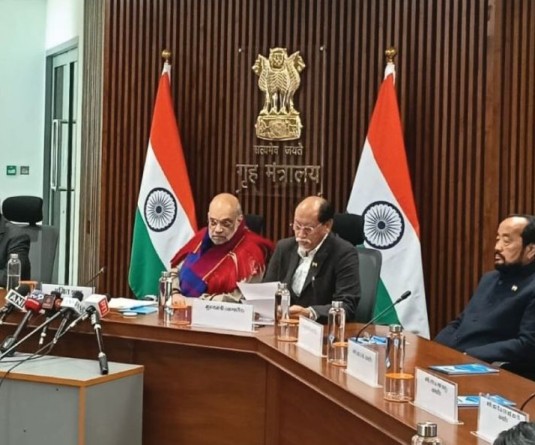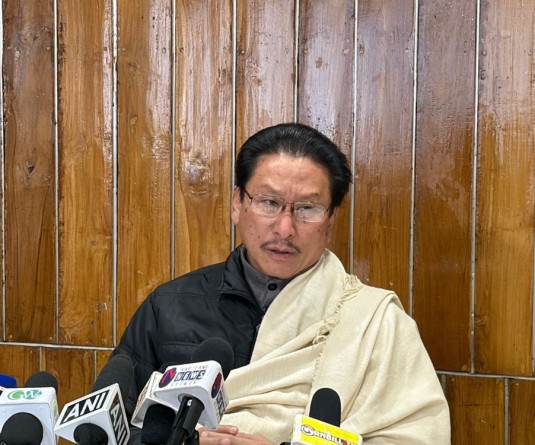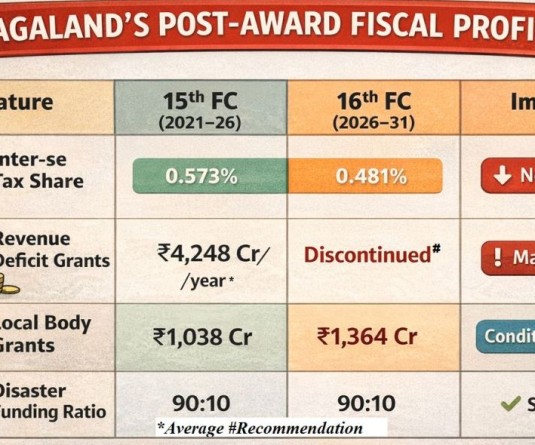
Morung Express News
Kohima | September 22
Perhaps, for the first time, an issue of ‘urgent public importance’ other than Naga political issue was been taken up for discussion in the Nagaland Legislative Assembly.
The issue of ‘medical negligence,’ however, found consonance with members sharing personal experiences while discussing the issue.
With the instances of medical negligence in the state, the discussion is needed to awareness to the government, health department, including doctors, nurses and health care workers, stated MLA and leader of the NPF Legislature Party, Kuzholuzo Nienu, initiating the proceedings.
If any measures or steps can be taken up, it would be to protect the interest of the common person and patients, he noted.
Nienu said that though medical profession is considered the noblest of professions, as it helps in preserving life, it was not immune to negligence. It often results in the death of the patient or complete/partial impairment or other miseries, adversely affecting the patient’s health, he added.
Citing one particular incident where a pregnant woman and her baby died, he maintained that “negligence is culpable (punishable) carelessness-conduct which involves an unreasonably great risk of causing harm to another.”
However, Nienu noted that the basis of a ‘medical negligence suit is still alien to the majority of the practicing doctors in Nagaland, whereas in advanced societies, there are instances where doctors have to face proceedings in the court of law due to the magnitude of negligence or deliberate conduct shown by the doctors.
Narrating his experience with misdiagnosed treatment in one of the hospitals which nearly cost him his life, Minister for Environment, Forests & Climate Change, YM Yollow remarked: " Perhaps many people have died who might have been misdiagnosed like me."
Nonetheless, he said “will not blame anyone,” but rather sought the attention of the house to work towards delivering better health care services to the people
Advisor for Urban Development and Municipal Affairs, Dr Neikiesalie Kire basing on his experience as a doctor was of the view that ‘though hazards happen, it’s not intentional.’
Yet, he pointed out that lot of doctors in the state are not in the right place citing the transfer and posting of doctors to the directorate.
Towards this end, he maintained that the health department can come up with many improvements for better health care delivery.
Advisor for Law and Justice, Dr Chumben Murry explained that medical negligence comes under three categories - medical ethics negligence, civil negligence and criminal negligence which are adequately covered under Medical Council Act.
On the suggestion made by Nienu to pass the Medical Negligence Act in Nagaland, Dr Murry said he is not aware of any state in the country having such Act in place.
However, he informed that in the circumstances of Indian law, remedies for medical negligence are adequately covered though some may require expansion.
Awareness & role of Dept, NMC
Many cases of medical negligence go unaddressed, he concurred, attributing it the already distressed patient does not want to go through the hassle of prolonged medico-legal battles or they are not well aware to take informed decisions.
To this, he suggested that bodies like consumer forums and legal awareness cells should take up awareness campaigns on dealing with medical negligence.
Minister for Health, Pangnyu Phom said the doctors regulate their conduct though a Code of Ethics and is enforced by their self-regulatory body. The Nagaland Medical Council (NMC) regulates the medical conduct of its members, he said.
Making a concluding remark on the discussion, Phom said the Council, on receipt of complaints against its members from patients or others, is expected to conduct enquiries on these. Depending on the seriousness of the complaints, he informed that the Council has the power to reprimand a practitioner, or suspend or remove his/her name from its register.
Thr are other legal options also available to aggrieved patients, which include filing a case for civil negligence where compensation for the injury caused due to the negligence can be sought, the Minister said.
A criminal negligence case can also be filed where the doctor shows a gross absence of skill or care, or an illegal act, he added. Cases can also be filed for damages as a consumer of services under the Consumer Protection Act, 1986.
Nonetheless, the Minister viewed that ‘the medical practitioner cannot, and is not expected to, assure the patient of full recovery in every case’ but exercise competence reasonably, if not fully while performing on the patient.
“Some of the things that one can expect from a doctor while performing on the patients would include that s/he does not fail in diagnosis, or prescribe wrong medication, or perform incorrectly or unnecessary surgeries on the patients’ he stated.
Phom asserted that patient’s safety should be the cornerstone of the standard operating procedures, protocols and processes that are put in place within a hospital.
It should be ensured by the department along with the NMC and other stakeholders, he added.
‘Pro-active and more effective self-regulation by the NMC would also ensure that people will not approach other forums, including by filing criminal complaints for any alleged negligence’ said Phom.
The Minister also emphasised on the need to increase awareness on patient’s rights, informed consent and medical records for the doctors as well as general public.






